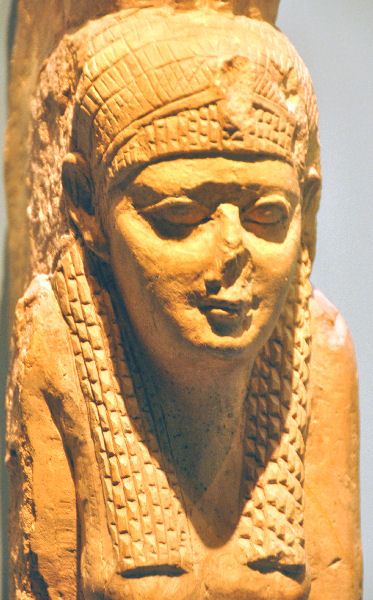
Antony and Cleopatra, one of history's most romantic couples, were not the great beauties that Hollywood would have us believe, academics have said.
A study of a 2,000-year-old silver coin found the Egyptian queen, famously portrayed by Elizabeth Taylor, had a pointed chin, thin lips and sharp nose.
Her Roman lover, played by Richard Burton, had bulging eyes, thick neck and a hook nose.
The tiny coin was studied by experts at Newcastle University.
The size of a modern 5p piece (18mm or 0.7in), the artefact from 32BC was in a collection belonging to the Society of Antiquaries of Newcastle, which is being researched in preparation for the opening of a new Great North Museum.
The image of Cleopatra as a beautiful seductress is a more recent image
Lindsay Allason-Jones, Newcastle University
Clare Pickersgill, the university's assistant director of archaeological museums, said: "The popular image we have of Cleopatra is that of a beautiful queen who was adored by Roman politicians and generals.
"Recent research would seem to disagree with this portrayal, however."
The university's director of archaeological museums, Lindsay Allason-Jones, said: "The image on the coin is far from being that of Elizabeth Taylor and Richard Burton.
"Roman writers tell us that Cleopatra was intelligent and charismatic, and that she had a seductive voice but, tellingly, they do not mention her beauty.
The Hollywood couple may have perpetrated a Hollywood myth
"The image of Cleopatra as a beautiful seductress is a more recent image."
The silver denarius coin would have been issued by the mint of Mark Antony.
On one side is the head of Mark Antony, bearing the caption "Antoni Armenia devicta" meaning "For Antony, Armenia having been vanquished".
Cleopatra appears on the reverse of the coin with the inscription "Cleopatra Reginae regum filiorumque regum", meaning "For Cleopatra, Queen of kings and of the children of kings".
The university hopes more forgotten treasures will come to light before the Great North Museum opens in 2009.
The Roman coin is on display in Newcastle University's Shefton Museum from 14 February.



Comment